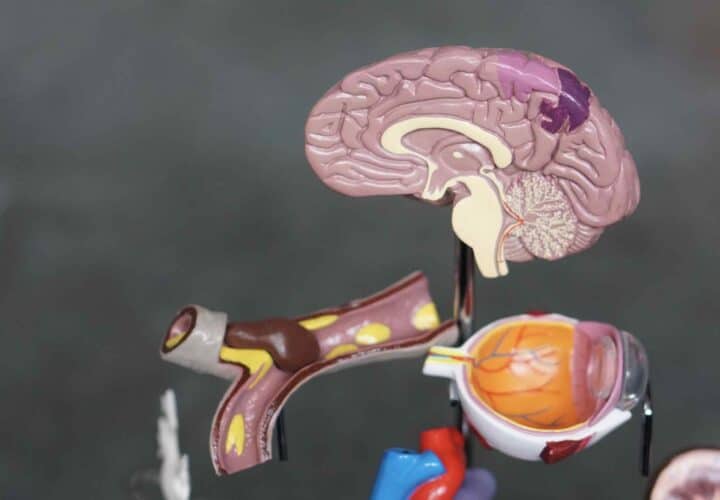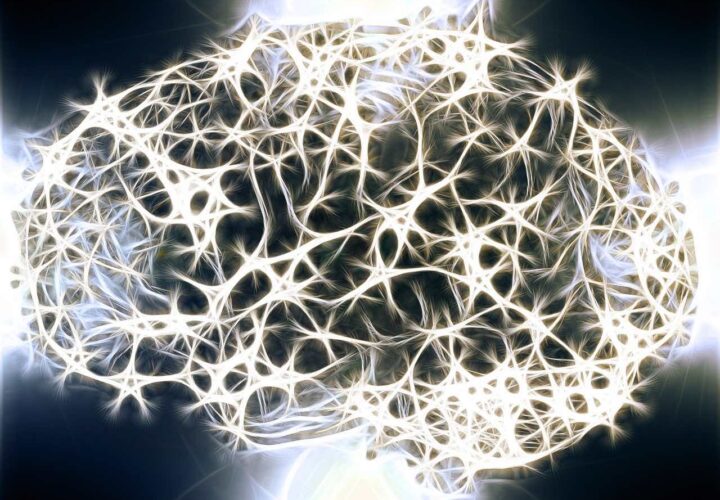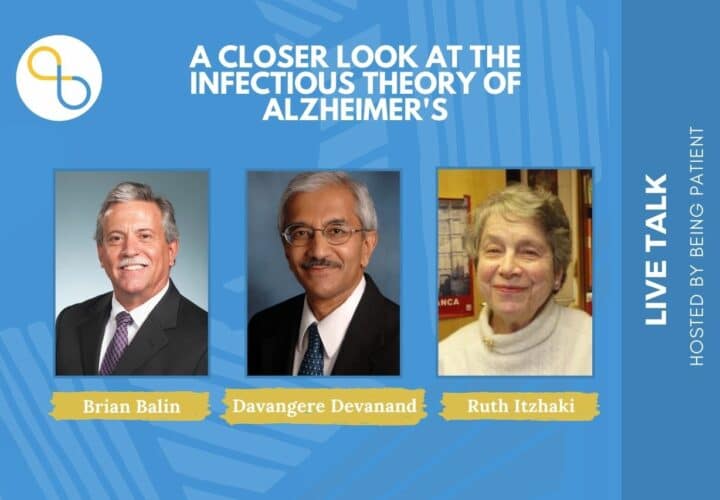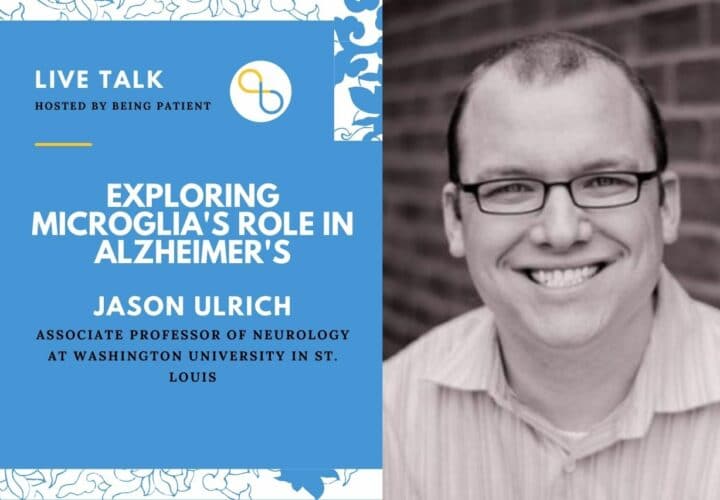Beta-amyloid plaques are a hallmark of Alzheimer’s, but researchers have long been puzzled about why these plaques can also be found in the brains of people who don’t develop the disease.
Being Patient takes a closer looks at the science behind what we know and don’t know so far about the role of beta-amyloid in healthy brains and those with Alzheimer’s.
Alzheimer’s is a personal journey, and every person’s experience is different. But everyone with Alzheimer’s does share one thing: aggregates of toxic beta-amyloid plaque in their brains. However, this common hallmark of the disease still baffles researchers, in part because not everyone who develops beta-amyloid plaques will develop Alzheimer’s. These plaques are a telltale sign, and the target of several Alzheimer’s drugs in the pipeline, along with Aduhelm, which was recently approved by the Food and Drug Administration. But researchers are also trying to solve the mystery of why they are found in the brains of individuals who never develop Alzheimer’s.
In a study published in JAMA Neurology in 2018, researchers assessed how many cognitively healthy older individuals had the toxic plaque in their brains. Out of 1,671 cognitively healthy people aged 80 to 89, about 43 percent were found to be “amyloid positive.”
While the plaques may precede cognitive decline, many of the people in the study with amyloid plaques did not develop cognitive impairment or Alzheimer’s. However, these cognitively healthy adults with amyloid positivity, the study found, were twice as likely to develop a form of mild cognitive impairment.
But scientists are still perplexed about the function of these beta-amyloid proteins and their role in cognitive decline.
Is Beta Amyloid Linked to Cognitive Impairment?
One of the modern mysteries of neuroscience and medicine is this relationship between beta-amyloid and Alzheimer’s. Since some healthy individuals with beta-amyloid plaques don’t develop Alzheimer’s, scientists have questioned whether it is even linked to cognitive impairment. If scientists can get to the bottom of this unexplained phenomenon, they can finally answer the question they’ve been asking for a century: What is the underlying cause of Alzheimer’s disease? Is it beta-amyloid? Or is it something else altogether?
Until very recently, most Alzheimer’s drugs failed in clinical trials because they didn’t improve cognitive symptoms, even though they cleared out these plaques. The anti-amyloid drug Aduhelm recently received approval, but the clinical trials showed mixed results in its ability to slow cognitive decline.
Eisai’s anti-amyloid drug, lecanemab, however, is restoring some optimism in the approach. Eisai recently filed for accelerated approval after showing that their treatment reduced amyloid plaques as well as slowed cognitive decline in their Phase 2 trials. Eli Lilly’s anti-amyloid drug, donanemab, has shown similar results.
Other researchers showed compelling links between beta-amyloid and other risk factors for Alzheimer’s disease and dementia. One study of cognitively healthy adults found that even one night of sleep deprivation resulted in increased beta-amyloid plaques in the brain.
Other studies found strong links between beta-amyloid plaques and infection, suggesting instead that beta-amyloid might be part of the brain’s immune response. A sign that something in the brain, or its response to infection has gone awry.
Unfortunately, the accumulated evidence so far doesn’t have a simple definitive answer. Beta-amyloid may be involved or even cause cognitive impairment in Alzheimer’s, but it could also simply be a marker of something else that’s gone wrong in the brain. Some theorize it may even be part of the body’s response to fighting the disease.
Early Diagnosis Could Answer the Question
By the time Alzheimer’s is diagnosed, it may be 10 to 20 years after the first pathological changes in the brain appear. Since beta-amyloid is difficult and expensive to measure, scientists are looking for other biomarkers in the blood and brain (via measuring the brain’s electrical activity). This may make it easier to detect other important risk factors for the disease, before symptoms arise.
By the time a person is diagnosed, it may be too late to stop the downstream effects of beta-amyloid plaques. With early diagnosis, it may thus be easier to develop better treatments for Alzheimer’s and identify the biomarkers most closely linked to cognitive impairment.



